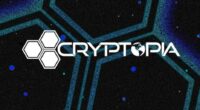Every day we come online, and we see different news about blockchain and cryptocurrencies, and we have the internet to thank for creating the enabling environment for us to learn about these emerging technologies. It is amazing to know that cryptocurrencies were met with resistance when they were first introduced, but with time, it soon became clear that the underlying technology called blockchain, had unique features that made it a technology that could be integrated into various systems, across different industries and sectors. At the moment there are a plethora of blockchain-based systems that have been created for different purposes, and this is due the fact that blockchain developers are always working to discover new use cases.
Blockchain is a decentralized distributed ledger technology with several unique features like immutability, enhanced security, transparency, etc. Hence, it is the perfect technology that can be applied to the verification of credentials. When such credentials get sent to the blockchain network, it is impossible to alter or manipulate the data. This is why three out of the big four banks in Ireland have opted for using blockchain technology for the verification of their staff’s credentials.
The three banks are Ulster Bank, AIB, and the Bank of Ireland, and the blockchain solution being implemented is from Deloitte. The financial service industry has never had a solution such as this one, hence, there is a lot of frenzy around this. The verification method was built with the Ethereum blockchain, and it will be used for the tracking and verification of staff qualifications data and credentials. According to reports from Fora, the credentials of the staff will be stored in a digital wallet, and will be applied when assisting banks, in compliance with the regulations set by the Central Bank of Ireland for adhering to some specific standards that have been put in place for the senior staff.
Another notable participant in the project is Ireland’s institute of banking who are in possession of 23,500 professional certification data of the employees. There will be a live launch of the project for the members of the institute, sometime in 2020.
It is interesting to know that blockchain has been applied at different points for the verification of credentials, hence, there are several other examples to mention: Sometime at the earlier part of 2019, one of the top financial services in the world, PwC implemented and launched Smart Credentials, which is a blockchain-based platform that allows company issues get digital versions of their personal qualifications. In Malaysia, the ministry of education has also adopted the use of the blockchain technology for the creation of a platform that will facilitate the verification of university degrees, as well as their issuance.
This is not the first blockchain based project that Ulster Bank, AIB, and the Bank of Ireland are getting involved in, as they have also had prior integrations of the technology in times past. For instance Ulster Bank and AIB were participants in a payments trial using blockchain technology.
Notice: Information contained herein is not and should not be construed as an offer, solicitation, or recommendation to buy or sell securities. The information has been obtained from sources we believe to be reliable; however no guarantee is made or implied with respect to its accuracy, timeliness, or completeness. Authors may own the crypto currency they discuss. The information and content are subject to change without notice. Visionary Financial and its affiliates do not provide investment, tax, legal or accounting advice. This material has been prepared for informational purposes only and is the opinion of the author, and is not intended to provide, and should not be relied on for, investment, tax, legal, accounting advice. You should consult your own investment, tax, legal and accounting advisors before engaging in any transaction. Please also visit our Privacy policy; disclaimer; and terms and condition page for further information.

